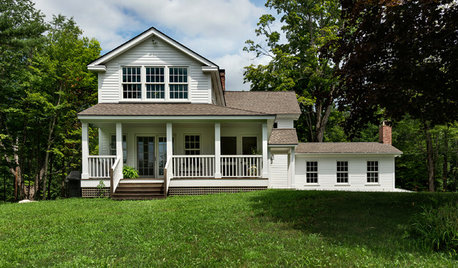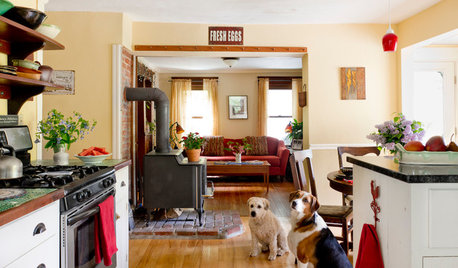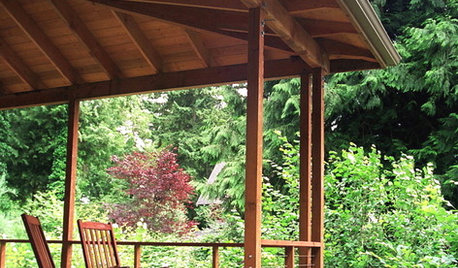New England Potatoes (Rocks)
picassolisa
10 years ago
Related Stories

WORLD OF DESIGNEngland’s Most Famous Garden Designer Has These Tips for You
Lancelot 'Capability Brown' was born 300 years ago, but his ideas about naturalistic landscape design may be more relevant than ever
Full Story
HOUZZ TOURSMy Houzz: A Backyard for Entertaining in New England
Plenty of seating areas, a rock garden and playful design details come together in this Massachusetts yard and detached garage
Full Story
TRAVEL BY DESIGNHouzz TV: Take a Leaf-Peeping Road Trip in New England
Ride along with a Houzz contributing photographer to see gorgeous autumn eye candy from New York to New Hampshire
Full Story
MY HOUZZMy Houzz: DIY Charm for a 1900s New England Home
First-time homeowners add their personal stamp with patterns and a mix of new and old
Full Story
TRADITIONAL HOMESHouzz Tour: Reviving a Half-Finished Farmhouse in New England
This 1790s foreclosure home was flooded and caved in, but the new homeowners stepped right up to the renovation
Full Story
HOUZZ TV FAVORITESHouzz TV: A New England Farmhouse Explodes With Color
Creativity and color burst from every corner in this unique 18th-century Massachusetts home for an artist and her family
Full Story
HOUZZ TOURSMy Houzz: Handmade Coziness in a Potter’s New England Home and Studio
Thoughtful details, a wealth of color and inviting farmhouse style rule in this family’s renovated house
Full Story
LIVING ROOMSRoom of the Day: Living Room Update for an 1800s New England House
Major renovation gives owners the open, contemporary feel they love
Full Story
GARDENING AND LANDSCAPING10 Rock Wall Ideas for a Style-Strong Patio
Strengthen the look of your yard — and solve landscape design dilemmas — with a rock wall that fits right in
Full StoryMore Discussions









toxcrusadr
pnbrown
Related Professionals
Eden Prairie Landscape Architects & Landscape Designers · Doctor Phillips Landscape Contractors · Ellensburg Landscape Contractors · Fairfield Landscape Contractors · Huntley Landscape Contractors · Lynwood Landscape Contractors · Salem Landscape Contractors · Winchester Landscape Contractors · Northlake Landscape Contractors · Champaign Decks, Patios & Outdoor Enclosures · Crystal Lake Decks, Patios & Outdoor Enclosures · Fairfax Decks, Patios & Outdoor Enclosures · Lake Morton-Berrydale Decks, Patios & Outdoor Enclosures · Liberty Decks, Patios & Outdoor Enclosures · Southampton Decks, Patios & Outdoor Enclosuresericwi
picassolisaOriginal Author
pnbrown
ericwi
lcpw_gw
luckygal
wantonamara Z8 CenTex
picassolisaOriginal Author
pnbrown
wantonamara Z8 CenTex
ericwi
pnbrown
batyabeth